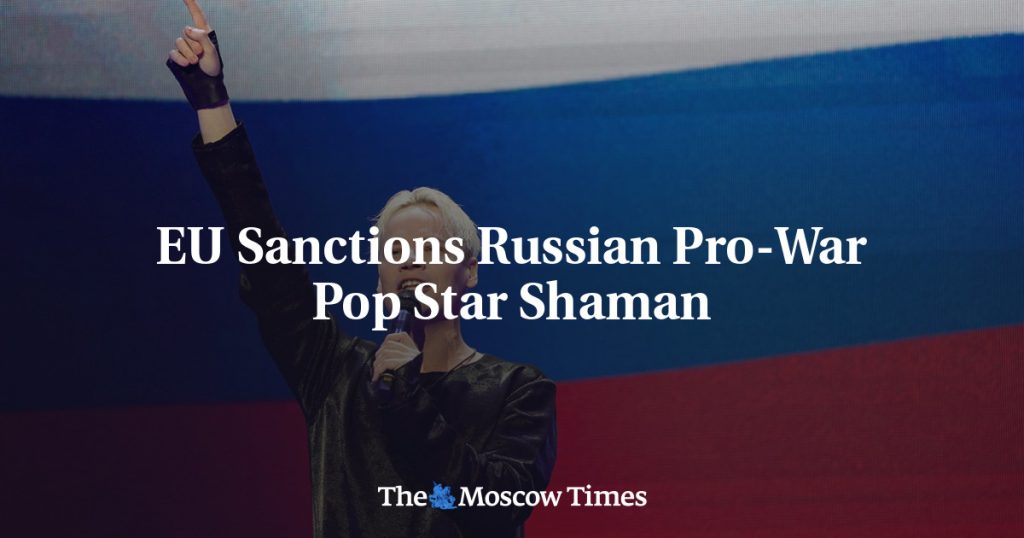Brussels applied restrictive measures against Russian pop singer Shaman for his involvement in promoting Russia’s invasion of Ukraine. The sanctions include an asset freeze and travel ban, citing his participation in Kremlin-organized concerts and performances in illegally occupied regions of Ukraine. Shaman, whose real name is Yaroslav Dronov, also performed at events for the Russian Armed Forces. The EU added 69 individuals and 47 legal entities to its list of sanctions targeting those violating Ukrainian territorial integrity and independence, bringing the total to more than 2,200 individuals and entities sanctioned against Russia.
In addition to Shaman, Russian pop singer Polina Gagarina was also sanctioned by the EU for generating significant revenue from state-sponsored events celebrating the annexation of Crimea and other Ukrainian regions under Moscow’s control. Actor Ivan Okhlobystin was sanctioned for participating in state-sponsored propaganda events and supplying goods to Russian troops and separatist forces in Ukraine. The EU also targeted organizations such as the Artek youth camp and the Akhmat Kadyrov Foundation, alleged to be involved in the forced deportation of Ukrainian children to Russia.
The EU sanctions not only targeted cultural figures but also officials and organizations associated with the persecution of Ukrainian children, army members, the judiciary, and FSB employees involved in the persecution of the Crimean Tatar minority. Last week, EU member states approved their 14th sanctions package, which includes banning Russia’s transshipment of liquefied natural gas through Europe and making it difficult for Russia to use a “shadow fleet” to circumvent EU sanctions on its crude oil. These measures are aimed at putting pressure on Russia and deterring their actions in Ukraine.
The EU’s sanctions against Russian individuals, organizations, and cultural figures are part of a broader effort to respond to Russia’s actions in Ukraine and hold those responsible accountable. The restrictions on high-profile individuals like Shaman, Polina Gagarina, and Ivan Okhlobystin highlight the EU’s commitment to targeting those who benefit from state-sponsored activities that further destabilize the region. By imposing both asset freezes and travel bans, the EU aims to limit the influence and reach of these individuals, making it harder for them to participate in activities that support Russian aggression in Ukraine.
The sanctions against Shaman and others are part of the EU’s ongoing efforts to address the situation in Ukraine by targeting key individuals and organizations that benefit from or contribute to the conflict. By focusing on cultural figures, officials, and organizations, the EU aims to disrupt the actors that support Russia’s actions in the region and limit their ability to continue their destabilizing activities. These measures send a clear message that the EU will not tolerate actions that violate Ukrainian sovereignty and that there will be consequences for those who engage in such activities.
As the EU continues to apply restrictive measures against Russia and its supporters, it underscores the importance of international cooperation in responding to crises like the conflict in Ukraine. By working together to target individuals and organizations that contribute to the conflict, the EU and its member states can exert pressure on Russia and hold accountable those responsible for destabilizing actions. These sanctions are just one part of a broader strategy to address the conflict in Ukraine and promote stability and security in the region, demonstrating the EU’s commitment to upholding the principles of territorial integrity and independence.


